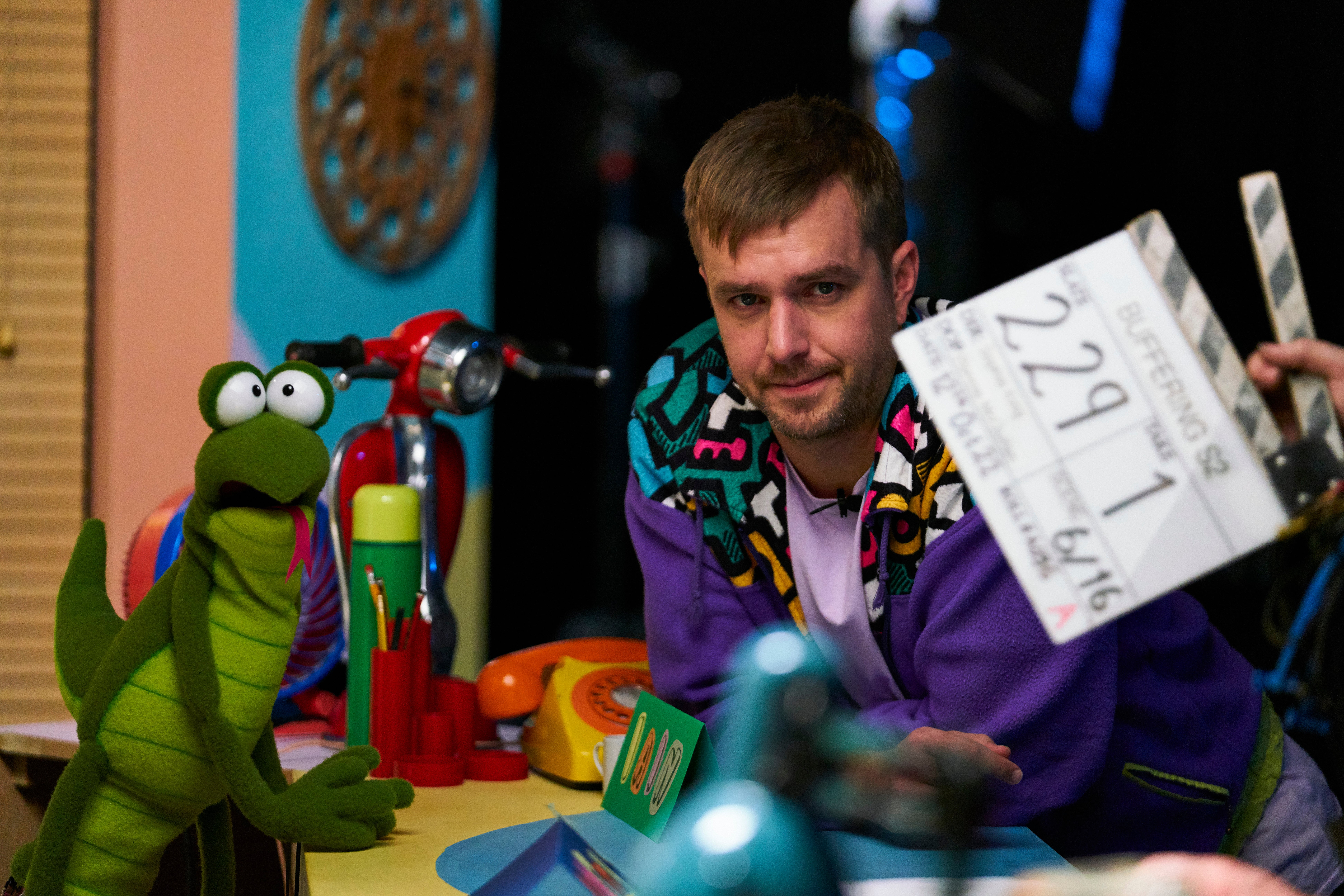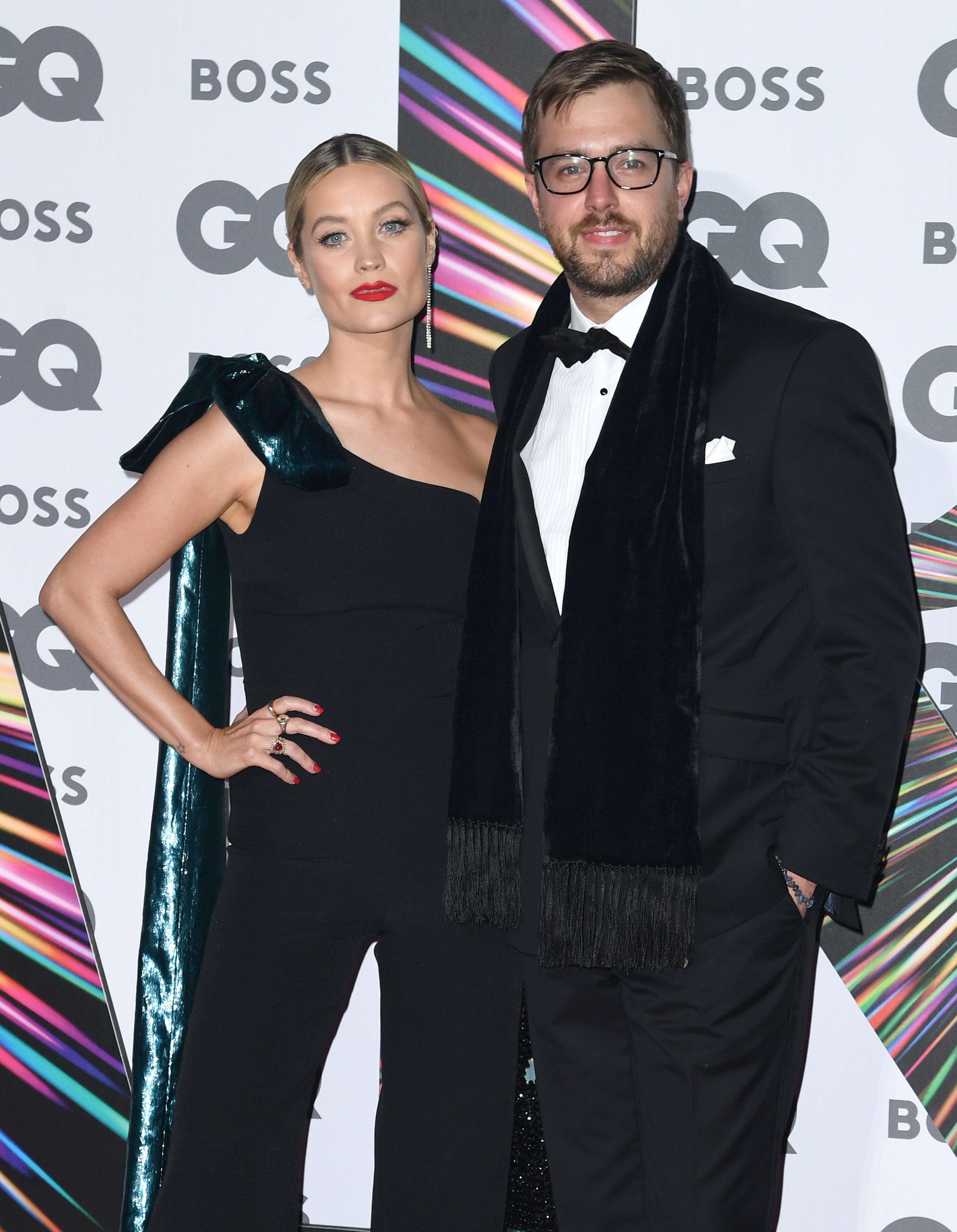‘Love Island could survive, not thrive without my voiceover’: Iain Stirling on the winter edition, his sitcom Buffering and the ‘innately funny’ world of kids’ TV
The stand-up who makes the dating show funny talks to Isobel Lewis about millennials, CBBC, and the battle between love and Instagram


Your support helps us to tell the story
From reproductive rights to climate change to Big Tech, The Independent is on the ground when the story is developing. Whether it's investigating the financials of Elon Musk's pro-Trump PAC or producing our latest documentary, 'The A Word', which shines a light on the American women fighting for reproductive rights, we know how important it is to parse out the facts from the messaging.
At such a critical moment in US history, we need reporters on the ground. Your donation allows us to keep sending journalists to speak to both sides of the story.
The Independent is trusted by Americans across the entire political spectrum. And unlike many other quality news outlets, we choose not to lock Americans out of our reporting and analysis with paywalls. We believe quality journalism should be available to everyone, paid for by those who can afford it.
Your support makes all the difference.There’s something a little unnerving about hearing Iain Stirling’s voice in the winter. For the past seven years, the stand-up comedian has soundtracked the nation’s summers on Love Island. Catch just a few words of his Scottish accent and you expect unrealistically attractive people in bikinis to be lurking nearby, lamenting the struggles of being “mugged off”. Stirling is aware of the association. too. “It’s a bit like I’m the Michael Bublé of summer,” he says, stirring a coffee. “I just disappear off the face of the earth to most people. I’m obviously touring, but no one really hears from me and then once a year I just arrive like [Bublé at Christmas], ‘Hi, do you remember me?’”
But it’s January, and Stirling’s not in hibernation. Instead, he’s heading into his busiest new year in a while. He’s currently spending every day recording sarcastic voiceover clips for Love Island, for the first time from the comfort of his London home rather than a portacabin near the show’s villa in Mallorca or South Africa. At the same time, he’s preparing for the release of series two of Buffering, his sitcom about a group of thirtysomethings living in a houseshare.
I meet Stirling just across from the former BBC Television Centre in west London, days before Love Island returns. He seems remarkably calm about the whole thing. Dressed in a hoodie and ripped jeans, the 35-year-old is unfailingly polite and strikingly honest. To many, there are two Stirlings – the Love Island guy heard by millions every day for four months a year, and the stand-up comedian. But he’s lived a whole other life before that, too. Growing up, the Edinburgh native’s dramatic education was non-existent (“no drama department in my school, no after-school clubs, no nothing”). It was summers at the Fringe festival that got him into comedy, leading him to give stand-up a go while studying law at Edinburgh University.
Stirling saw himself as a serious comedian, but a career in kids’ TV got in the way. “I’m 22, and I want to be [the late American satirical comedian] Bill Hicks, and I’m dressed as a ballerina, talking to a puppet dog – it’s not ideal,” he recalls. He couldn’t see it at the time, but the “innately funny” world of kids’ TV would go on to provide rich comic material for Buffering. Stirling plays the clearly autobiographical Iain, a listless children’s television presenter surrounded by a group of similarly floundering millennials, all of whom had assumed they’d have moved on from the whole houseshare thing by now.
The first series aired during 2021’s Love Island, while series two drops now amid this year’s winter series. The episodes air just after the dating show – Stirling and co-writer Steve Bugeja’s target audience being “people that have lost the remote control during an hour-long episode of Love Island”. But it’s not just the weather that’s changed between series one and two of Buffering. There’s a clear upgrade: the script is tighter, the jokes are funnier, the characters are given their own space to shine.
In recent years, we’ve seen plenty of sitcoms explore the millennial experience and the hellish rental market that often comes along with it. Stirling reckons millennials make great TV because they’re a “massive go-between” generation. Just when they were coming of age, they were learning how to speak about topics such as mental health – albeit in a way that was “a bit clumsy and w***y and up our own a***s” – while also dealing with political unrest and the financial crash.
“You’ve just got these young people who are aware of the effect [that’s] having on their mental wellbeing, they’re trying to articulate that, and at the same time they’ve been given this medium of social media where they can tell everyone how they’re feeling and it’s really clumsily done. So we became this joke of latte-drinking softies, when in fact we were basically the test subjects for what would happen if the world fell apart slightly and you were given the very basic lexicon to explain how that makes you feel.” He exhales, deeply.

Buffering delves into the millennial experience, inspired by Stirling’s days as a flicky-haired CBBC presenter from 2009 to 2015. He continued performing stand-up throughout his time on kids’ TV, but felt embarrassed and ashamed of his day job. “I would try and have heartfelt conversations with my friends about where my career was at, but it’s really hard to be like, ‘Oh, I’ve been overlooked for Dick and Dom again,’” he says.
Now, he can see he was lucky. Not only was a paying TV gig a rarity, but it allowed him to create work he’s now “dead proud of”. “I was a better comic on kids’ TV than I was doing stand-up back then – and it’s up for debate now,” he insists. “We weren’t making it for kids, we were making it for us, but within the parameters we were given.”

Watch Apple TV+ free for 7 days
New subscribers only. £8.99/mo. after free trial. Plan auto-renews until cancelled

Watch Apple TV+ free for 7 days
New subscribers only. £8.99/mo. after free trial. Plan auto-renews until cancelled
Last year, the BBC announced plans to close CBBC as a linear channel, replacing it with online-only content. Stirling accepts that the way children consume content has changed, and says the BBC will undoubtedly benefit from it, even if the “old man” in him is “devastated”. The “worrying thing”, however, comes from the shift to kids entertaining themselves online, which is something he’s far more conscious of since welcoming a daughter with his wife, the former Love Island presenter Laura Whitmore.

“I’ve always felt like the thing that’s great about kids’ TV is that the gatekeeper, so to speak, is the parent, right?” he says. “When TV makes content for children, aiming at the parent, you make this thing that’s safe and good for [kids] – nourishing. Whereas now, social media is this really scary world where we’ve got these corporate people, who know it’s a multibillion-pound industry; kids have got direct access to it, and corporate are like, ‘Right, what is the most addictive s*** we can make for a five-year-old?’ That’s f***ing terrifying to me.” And, sadly for the BBC bosses who have chosen to take CBBC online, the key for him as a parent, he says, will come from distinguishing between “television and phone stuff, and the phone stuff is junk food”.
When Stirling first started out on CBBC, he feared he was closing himself off from a proper comedy career. And when he was approached in 2015 to provide the voiceover for a spin-off of mid-Noughties dating show Celebrity Love Island – but this time with real people! – others in the industry warned him that the same would happen. “People were like, ‘Hmmm, I don’t know about that. It’s a payday, but you won’t get to do panel shows, you won’t get interviewed in broadsheets,’” he says. “It’s insane now... but at the time there was a really regimented way to go about comedy, and if you didn’t do it that way, you were frowned upon a little bit.”
He needn’t have worried. Love Island allowed Stirling to make a name for himself on his voice alone, carving out a sarcastic style of narration adopted by just about every dating show since. “It’s wild [that ITV] let us have a voiceover that takes the piss out of a new show they’ve spent all their money on,” he says. “Series one, we were literally like, ‘This is s***,’ and they were like, ‘Yeah you can say that.’ You’d get away with that on no other show.” At this stage, now that Love Island is so synonymous with his narration, could it work without his dry, self-aware commentary? “I think it could survive...” He pauses, and clarifies: “Survive, not thrive. That’s just a contract thing, I don’t want ITV getting any ideas.”
Stirling still has a massive soft spot for those early series – the golden age of Love Island, if you will. The contestants had “no idea” what they had let themselves in for, he says, adding: “I don’t even think that first season they’d gone on for love. They’d literally gone on for a free trip to Spain, saved 90 quid on a flight to Magaluf! They were wild. Calum Best took them all on a night out! What is going on?”
To reflect on modern society, there should be some body diversity in the Love Island villa
As the show has grown in size, the contestants have inevitably changed. With brand deals, spin-off series, and fashion collaborations potentially available, today’s islanders feel more reserved, more focused on what awaits them when they leave the villa. None of them, strictly speaking, seems to be in there to find love, but the show requires you to pretend for a second that they might be. It’s an argument I expect Stirling to dismiss. In fact, he’s the one to bring it up.
“I think if you don’t acknowledge the fact that some people have gone in for reasons other than love, you then [ignore] that people can go in to find love and to get 50,000 followers on Instagram. They’re not mutually exclusive,” he says. “If you meet someone that you really like, and you’re in a beautiful villa and you’re lying next to each other in bed every day, you’re gonna get feelings for that person. I’m not embarrassed to be like, ‘Yeah, people go in for other reasons other than love,’ because love’s still there and that’s what’ll show.”
As both the show’s narrator and a fan, Stirling would also be keen for Love Island to include contestants with a more diverse range of body types. “I suppose my argument is that Love Island isn’t treating those people as a norm,” he theorises. “Love Island [says], look at these incredibly good-looking people... and their job, pretty much, is being good-looking. Do I think the show would benefit from a load of different people? Absolutely, on a number of levels. To reflect on modern society, there should be some body diversity in there; and then as the narrator, personally and selfishly, I’d love more of that. More stuff to talk about.”
Listening to Stirling, a man who has watched even more Love Island than I have, and hearing his belief in the format, I feel as though he could persuade even the biggest sceptic to suspend their disbelief. For the first time, this year’s group of islanders have been asked to freeze their social media accounts while they’re on the show, rather than handing them over to their families or friends. Stirling is an enthusiastic supporter of the policy – frankly, he says, “it’s insane that that happened before”. It’s a sign of ITV’s willingness to adapt in order to lessen problems surrounding social media, he says, while also hopefully preventing the most business-minded potential islanders from applying. “Again, it’s a show where you’re there to find love,” he says, eyebrow raised and with a glint in his eye. “If someone’s like, ‘My Instagram’s not posting while I’m on the show,’ you’re like, ‘Well you’re here to find love anyway, so...’”
‘Buffering’ season two begins Monday 30 January at 10.05pm on ITV2 and ITVX



Join our commenting forum
Join thought-provoking conversations, follow other Independent readers and see their replies
Comments